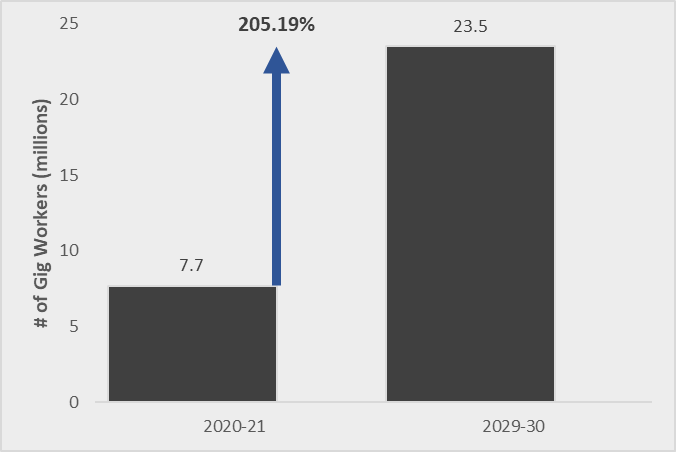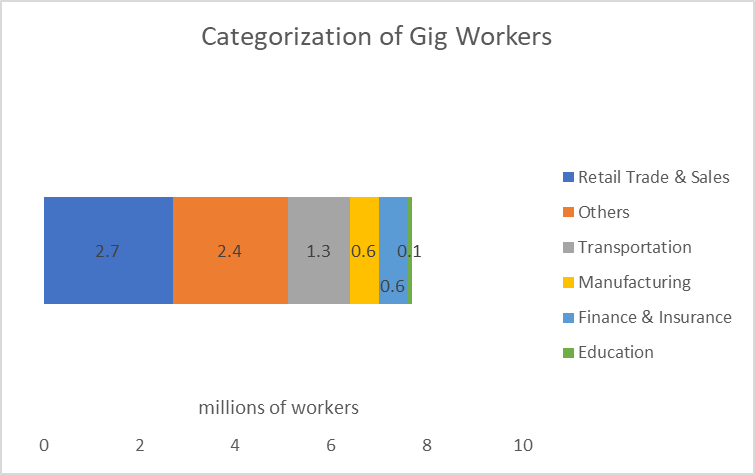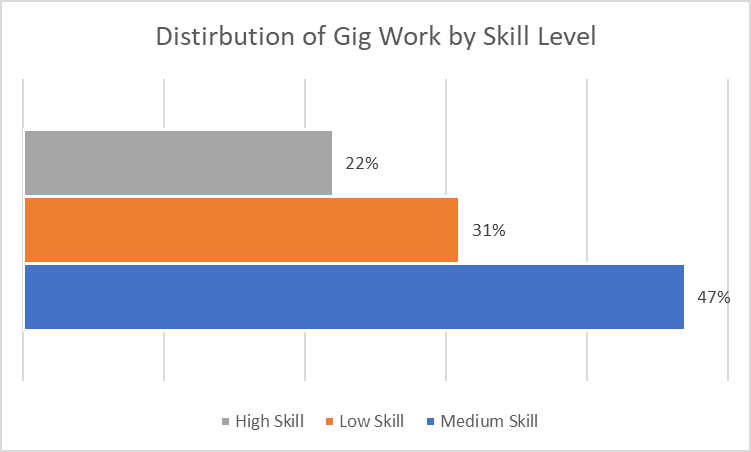Gig workers are of two types: platform and non-platform-based workers. Platform workers are those whose work is based on digital platforms - Uber drivers, Zomato delivery agents, etc. and the non-platform workers are the casual, part-time, own-account workers in the conventional sectors.
Trends show the concentration of workers in medium skills is gradually declining and that of the low skilled and high skilled is increasing. It may be expected that while the domination of medium skills would continue till 2030, gig work with other skills will emerge.
Gig work lies beyond the formal-informal work dichotomy, and is rather ill-defined. Platform work is slightly more well-defined, and the following analysis will focus on that.
Scope and characterization of Gig work:
Platform work has relatively low barriers to entry and hence holds high potential for job creation,
Platform work offers better income opportunities than those engaged in similar non-platform work
300 cities are covered by such platforms
Tech-based job allocation by platforms has eliminated some of the inefficiencies in these sectors
Gig workers seem to differ from conventional workers in terms of some individual characteristics. Gig workers are comparatively young, working for fewer hours a day on gig work, preferring a flexible work schedule, typically with a low to the middle level of education. Income through gig work is not their primary source of income and they are often holding another regular job. They value transparent, timely, and assured payments while non-wage benefits are not attractive to such workers. Apart from these common characteristics, there are specific characteristics. For instance, women prefer high-skill segments with flexible work hours, to fulfill both their work and household commitments6. Students look at the gig economy as an additional source of income. Similarly, students looking for partial incomes with flexible schedules form a part of the gig workforce.
Challenges of Gig work:
Lack of job security, regular income,
As these workers are independent contractors, they don’t get workplace protection and entitlements,
Workers face stress due to algorithmic management practices
Also, read this short McKinsey report on grocery retail for a little bit of jargon:
https://www.mckinsey.com/industries/retail/our-insights/the-state-of-grocery-retail-in-india
The full report is linked inside if anyone’s interested.
References:
https://www.niti.gov.in/sites/default/files/2022-06/25th_June_Final_Report_27062022.pdf





